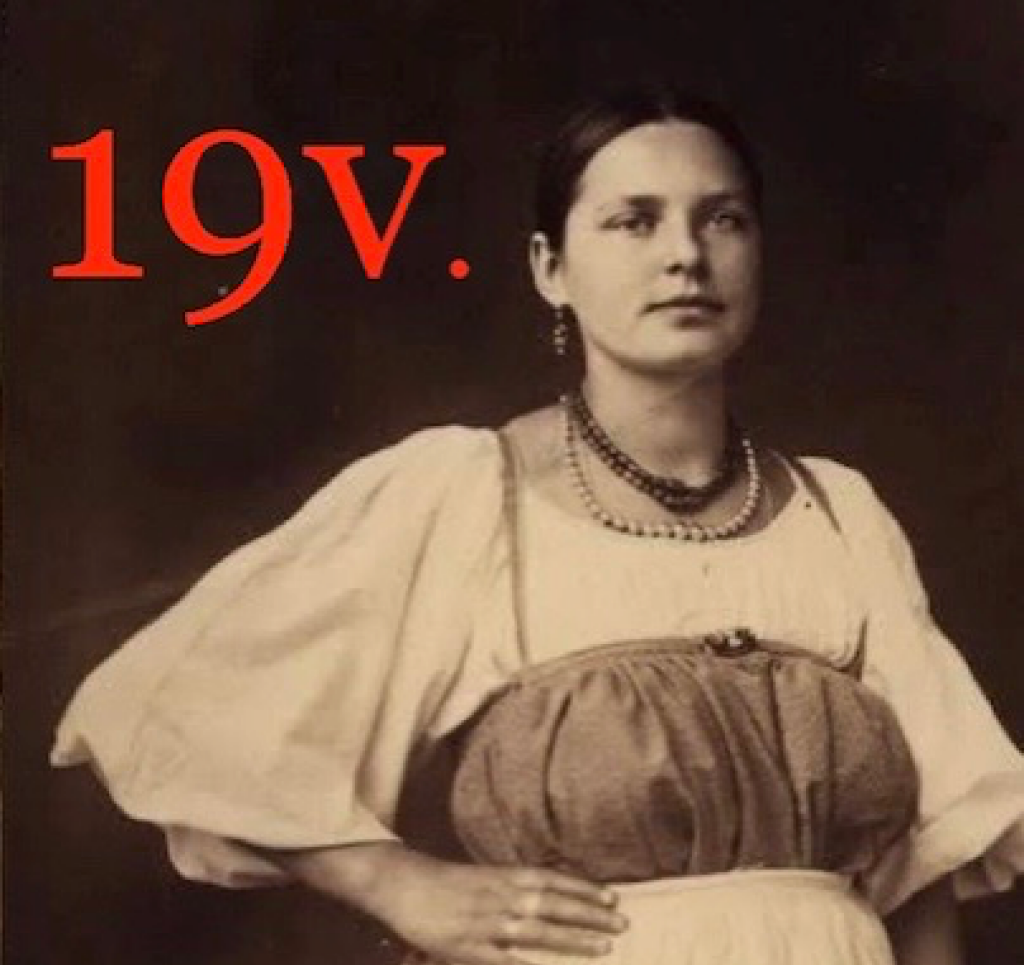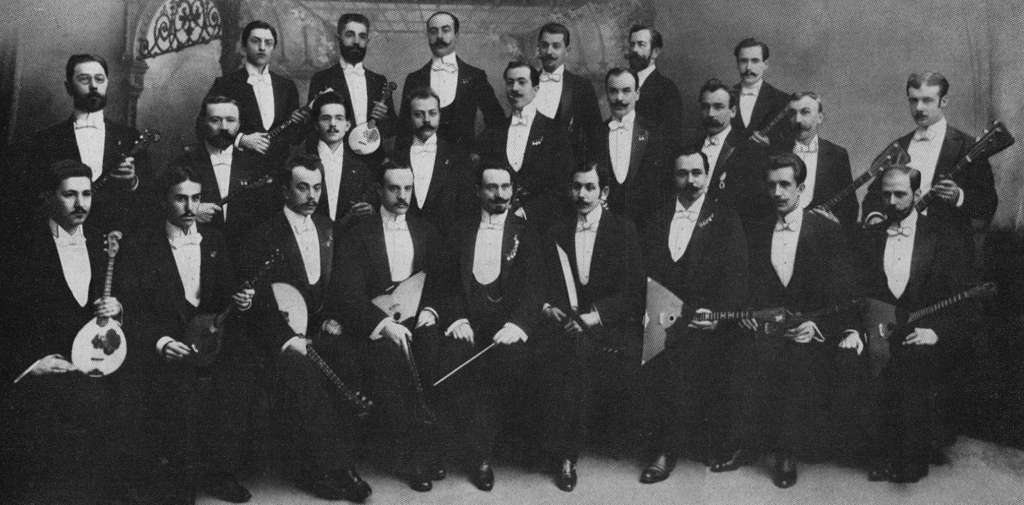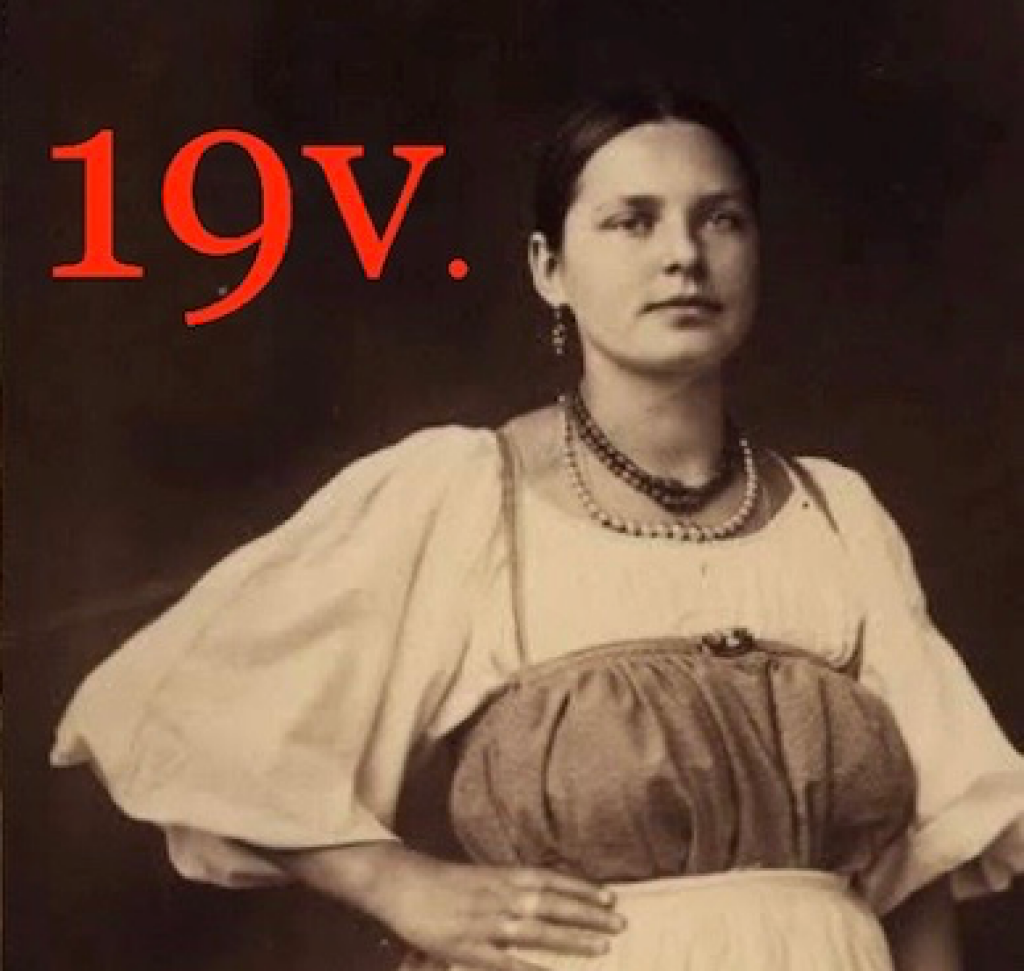This is Part I in a two-part series. Part II will follow on Tuesday, 3/2.
Sara Dickinson is an Associate Professor of Russian Literature and Culture at the University of Genoa (Italy).
Why bother reading the minor writers of nineteenth-century Russia? There seems to be such a surplus of major writers, why dig any deeper?
Well, to begin with, there were a lot of them, many of whom lived fascinating lives and wrote astonishing texts. No matter how much Tolstoy, Turgenev, and Dostoevsky wrote, in fact, minor writers wrote more. It was actually relatively easy to become a minor writer in nineteenth-century Russia. One no longer needed to be a courtier, or an acquaintance of Novikov, or have friends at the Cadet Corps. This was especially true towards the middle of the century when a proliferation of journals meant that everyone and his/her cousin could dream of being published. Fiction from that era repeatedly points to the growing and widespread appeal of attaining literary fame that reached deep into the provinces along with print journalism itself. In Goncharov's A Common Story (1847), for example, Aleksandr Aduev sets out from his provincial home for the capital with the idea of achieving glory as a poet or novelist. Even Raskol'nikov's father -- who was more or less of Aduev's generation and dead before Crime and Punishment (1866) begins -- dreamt of becoming a writer and had (unsuccessfully) submitted "first poems and then an entire povest'" for publication, accompanied by fervent prayer.
Relatively easy does not mean that it was easy. A century or so before the internet, becoming a minor writer required a good deal of work, after all, and as we know, contributing to a journal or starting one was easier for those who had connections and capital. And members of the elite vigorously guarded the gates. So unless the journal was your own, it was necessary to impress editors with something they would view as worthy of publishing, according to whatever blend of esthetic, sociopolitical, and commercial motives guided them in that particular moment.
Writers that lacked family connections and a clear position in the elite -- such as Goncharov, Leskov, and Dostoevsky himself -- generally had more difficulty becoming established. All three of these men managed to clamber their way into the major leagues at mid-century, however, to take up a place beside, well, Turgenev and a handful of others, as we'll discuss in Part II. Or maybe Goncharov and Leskov are now minor writers? They would probably not pass an undergraduate name-recognition test outside of Russia: most first-year university students are unlikely to have heard of either, or, for that matter, of Pushkin, Lermontov, Gogol', and (unless theater-goers) Chekhov. Thankfully, all of six of these writers have been translated numerous times so that those of us who teach in translation can easily add them to our syllabi and treat them as major -- in addition to Turgenev, Dostoevsky, and Tolstoy, the more obviously canonical figures in the international arena. Thus, if students abroad arrive later to the writers on this list than their Russian counterparts, when they do, they'll have a variety of texts to choose from. And we, as both teachers and scholars, can happily to spend years, even lifetimes, on this newly expanded list of major writers. And, really, why not? With major leagues like this, who needs the minor leagues at all?
Another reason for studying minor writers is that they allow us to better understand the major leagues and the mechanisms that determine "majorness" and "minorness." As the example of Dostoevsky clearly illustrates, major nineteenth-century writers were not born as such, and the process of being consolidated as major over time (also known as "canonization") would appear to vary in form with nearly every single case. "Major" writers seem to emerge slowly out of a pool of "minor" writers, as if from the fog or swamp of a literary meshchanstvo or some catch-all middle-class into which they can slide back again if circumstances are not entirely favorable. And while many scholars have studied the fascinating process of becoming major, fewer have examined the process of being consolidated as a minor writer, although it can be equally gripping. This is in part because the verdict of "minor" often seems to involve some kind of failure: a writer must first attract notice and then somehow fail to keep the public's attention in order to be judged minor. The possible causes for such falls are myriad: literary, personal, political, linked to a given era's blind spots and prejudices, to historical accident, and/or to the same factors -- class, gender, ethnicity, and so on -- that made getting into the major leagues so unlikely in the first place.
That said, if elite social standing was necessary to become a writer in some eras, it was a liability in others -- in post-revolutionary Russia, for example, but also in the 1860s, when the vitriol of radical critics scarred many of the writers on our roster of majors. While they ultimately survived, many others did not, the shifting orientation of critics and readers affecting writers personally and posterity's appreciation of their legacy. A foretaste of the "1860s effect" had struck Evdokiia Rostopchina fifteen or twenty years earlier. Well-respected in the 1830s and early 1840s, she was then "disappeared" from literature's inner circle as out of step with the times: her continuing and unapologetic interest in elite society flew in the face of the democratizing and populist trends that directed the literary footsteps of many of contemporaries who were able to better weather the next few decades. Rostopchina went dormant only to be rediscovered much later -- in the early twentieth century by the poet Vladislav Khodasevich, another whose fame and reach were truncated by historical events combined with a refusal to conform to rhythms that were not his own. A major poet, or a minor one? Nabokov called Khodasevich "the greatest Russian poet of our time", but it is hard to find a canon in which he is firmly ensconced.
Rostopchina was also a woman, of course, and one of an astonishing number of women writers who were highly regarded and eagerly read in the nineteenth century, but not widely known today, even within Russia. Nonetheless, Turgenev, Dostoevsky, and Tolstoy not only knew women writers well, but borrowed from them. "I read 'Naden'ka', [Mariia] Zhukova's tale," writes Tolstoy in 1853, admitting even to have somewhat enjoyed it, though "Prior to that it was enough for me to know that the author of a tale was female in order not to read it. Because nothing can be more comical than a woman's view of a man's life, which they often set about describing." Despite such protestations, readers of Zhukova's "Baron Reichman" (1837) will be struck by its Kareninesque triangle, complete with a heroine who has a son "Sergei" and a lover resembling Vronsky, though his name is "Levin". Where did these women writers then go? What combination of factors kept the gate so securely and so misogynistically closed for so long? That's the ten-thousand dollar "woman question," and part of the answer undoubtedly lies in the spongy sinkholes at the edge of the majors' turf.
I see minorness less as the flip side to majorness (Salieri to Mozart), than as the primordial and enduring muck from which majorness can sometimes arise when the planets are in perfect alignment. The major writer must be endowed with literary interests and abilities in sync with the historical moment, endowed and enabled by personal circumstances such as gender and social status (including personal connections and geographical location), and also made visible or "discoverable" by the prerogatives of the publishing industry and the demands of readers at a given time -- and once discovered, must continue to be of interest or rediscoverable by future generations. Minorness shouldn't necessarily be equated with "mediocrity", then, or even "averageness." It does, in a sense, constitute the backdrop for "greatness" (the major leagues), but seeing it as such also encourages us to try to define and delimit these overlapping spheres in an endless rehashing the problem of greatness vs. non-greatness (What is Beauty?) when there are so many other factors at play.
In a sense, of course, the question of who is major or minor does depend upon the eye of the beholder or point of view, but it is also thoroughly historical. Tolstoy and Dostoevsky were once both minor beside Turgenev, while the latter arguably reverted to the minor leagues during his own lifetime, at least for some sectors of his public. A more rewarding approach to the problem, it seems to me, is to explore how both phenomena, majorness and minorness, are thoroughly intertwined with historical "fate", including the specific ways in which the lives of individual writers engage with specific historical contexts. And certainly the interaction between concrete writers and their historical circumstances is by no means less interesting for those that we are inclined to regard as minor today.



